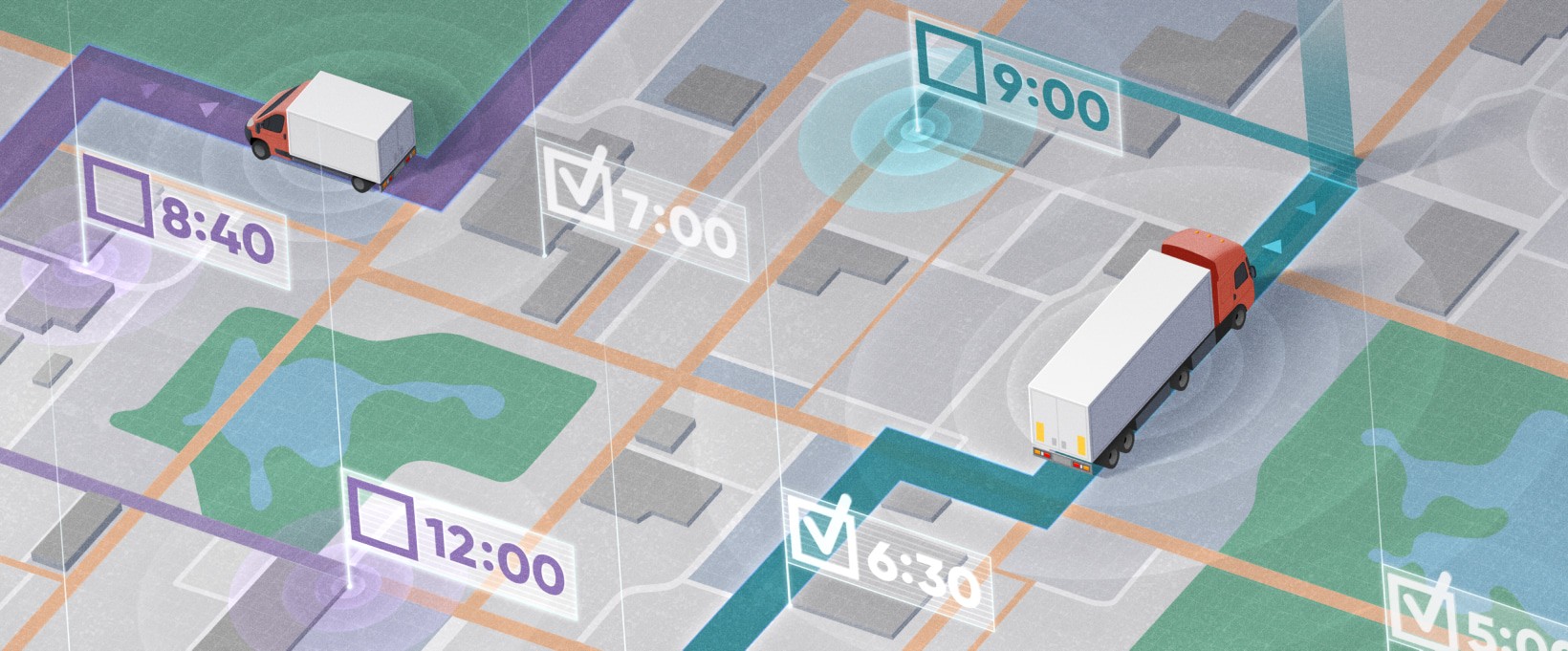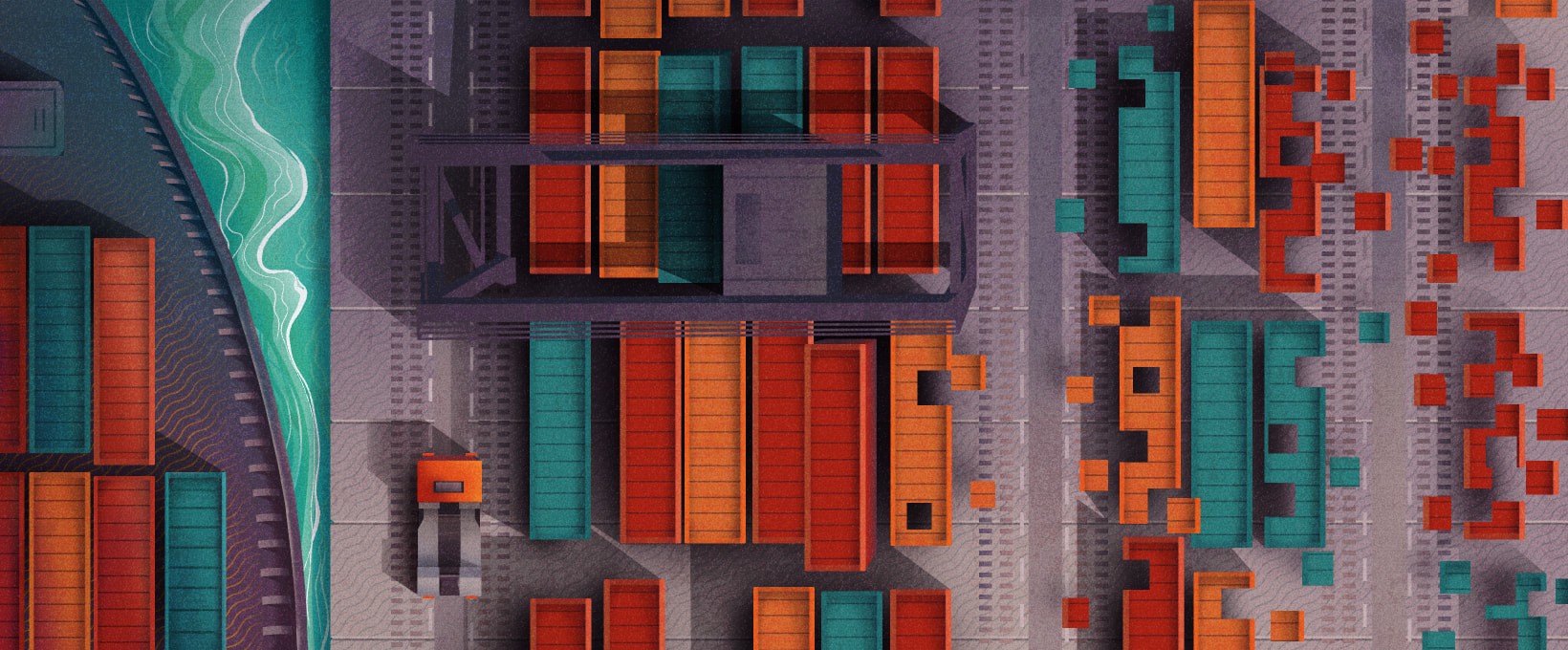- What is logistics software? Key statistics
- Why develop a custom IT solution?
- Essential logistic software features
- Types of logistics software used today
- Andersen’s proven expertise in the niche
- A supply chain and freight administration platform with a global reach
- Adding cutting-edge features to a fleet control platform
- A successful car rental and sharing app
- To sum up
The global economy of today heavily relies on the logistics industry. The reality of distribution network disruptions due to health pandemics, military hostilities, trade disputes, and border shutdowns has become a norm. In this scenario, businesses must utilize technology to the full to continue adequately delivering diverse goods and services. This article sheds light on the challenges faced by the industry, highlights the most in-demand logistic software features, and delves into the various types of logistics software that are currently relevant. Keep on reading to embrace the latest tech trends and thus, build strong relationships with your partners and successfully adapt to changing market conditions and customer needs.
What is logistics software? Key statistics
So what is logistics software in plain terms? It refers to a group of programs that are specifically designed to help companies manage their logistics operations. The latter can range from transportation and storage to inventory and order fulfillment. The goal of the technology is to streamline these types of processes and make them more efficient, reducing costs and increasing the overall effectiveness of the supply network.
The market for supply chain software is soaring. According to Statista, in 2020, the sector brought a staggering $15.75 billion in revenue, which subsequently increased to $16.94 billion in 2021 and topped $18 billion in 2022. However, it’s important to note that these numbers don’t yet reflect the potential impact of the advancing military hostilities in Eastern Europe.
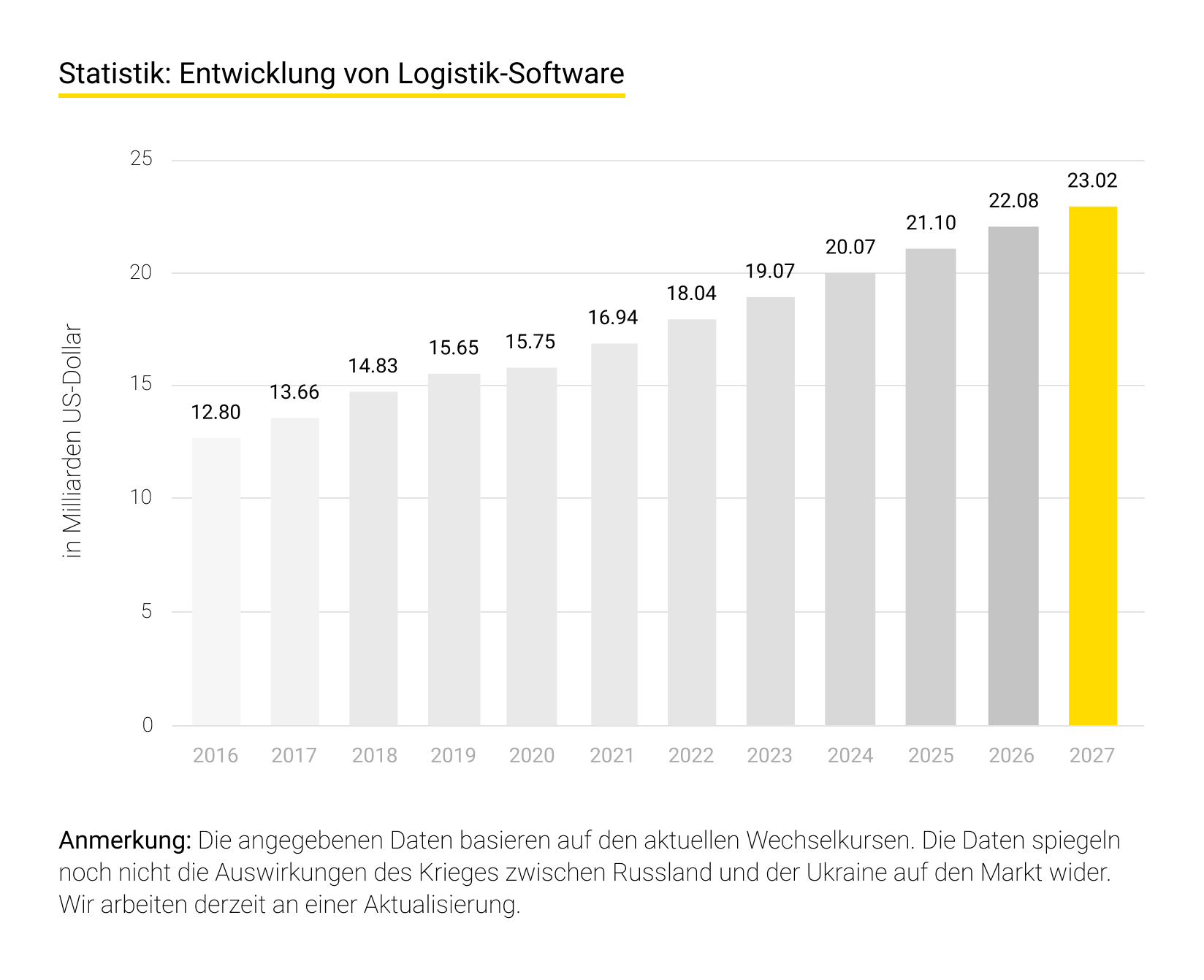
Why develop a custom IT solution?
The noticeable upward trend highlighted in the previous section is undoubtedly propelled by a combination of compelling logistics software benefits and the industry’s pressing needs. In 2021, Gartner took the trouble to conduct a thorough survey. The following findings shed light on the motivations behind investing in custom products:
-
89% of experts were aiming to increase the agility of their workflows;
-
87% of them considered resilience as a priority;
-
56% sought to achieve a higher degree of automation to improve the economic viability of their onshore operations;
-
45% viewed cost-effectiveness as a primary concern;
-
30% emphasized the necessity of transitioning towards regional models at the expense of globalized ones.
Given the above facts, it's sensible to deduce the following causation chain:
-
The unstable and unpredictable nature of the world due to health crises, military hostilities, and trade wars creating a sense of insecurity;
-
This results in ongoing disruptions to distribution networks, causing a partial "deglobalization" of the world;
-
To tackle these problems, experts seek to equip their businesses with the ability to perform multiple and sometimes conflicting types of tasks that involve combining resilience with agility, balancing a global presence with a regional focus, and maintaining cost efficiency while staying up-to-date;
-
Given the complexity of the above requirements, it's essential to invest in custom logistics software that can effectively address these types of challenges.
Essential logistic software features
When it comes to designing an efficient logistics and transportation system, customization is key. However, there are certain types of essential components that your company should consider. Based on our in-depth expertise, we suggest the following overview:
- Inventory control to keep track of assets, with logistic software features like processing purchase orders, monitoring provision levels, controlling fulfillment procedures, creating data-driven forecasts, and optimizing your processes end-to-end;
- Transportation coordination to oversee fleet operations — the types of available features encompass route planning and optimization, behavior monitoring, dispatching, fuel control, payload assessment, and cost analysis;
- Warehouse administration to handle storage locations and inventory, incorporating features like barcode scanning, resource allocation, picking and packing, and surveillance;
- Tracking features to monitor flows and vehicle conditions by utilizing cutting-edge technologies such as IoT solutions, telematics, GPS, geolocation, navigation, and dynamic mapping;
- Risk management and business intelligence to make informed decisions and forecasts by collecting, processing, and analyzing recent data with the help of customizable dashboards;
- Accounting and CRM systems to streamline daily operations and enhance customer loyalty through report generation, accounting, and data visualization.
Types of logistics software used today
With a focus on custom-fit software types, Andersen delivers the following functional scopes:
- Fleet management software designed to enhance your operations through features such as detailed route planning, GPS tracking, advanced telematics, state-of-the-art navigation, scheduling, mapping, and reporting, as well as integration with third-party logic;
- Car sharing, pooling, and rental solutions tapping into the increasing demand for shared mobility — within these types of logistics software, you can obtain such functionalities as expeditious vehicle booking, rate overview, tracing and tracking, geolocation, contract creation, etc.;
- Warehouse management software that helps keep track of your stock levels, send out alerts, scan products, and efficiently replenish diverse types of inventory;
- Order management systems streamlining parcel processing and delivery services and helping to effectively handle various fulfillment challenges.
Andersen’s proven expertise in the niche
Over the past sixteen years, our team has envisioned and built feature-rich and state-of-the-art logistics software for small business representatives and major enterprises. Below, you can find a selection of the most illustrative projects.
A supply chain and freight administration platform with a global reach
This complex IT initiative was carried out to seamlessly connect diverse participants of convoluted supply networks, including shippers, agencies, individual agents, suppliers, and more. The resulting convenient and intuitive platform allows its users to effortlessly search and compare various freight forwarding options with real-time visibility into the prices, itineraries, and other terms of carriers. Furthermore, the web app provides instantaneous updates on the shipment status, on-the-spot communication options, and other instruments for productive collaboration.
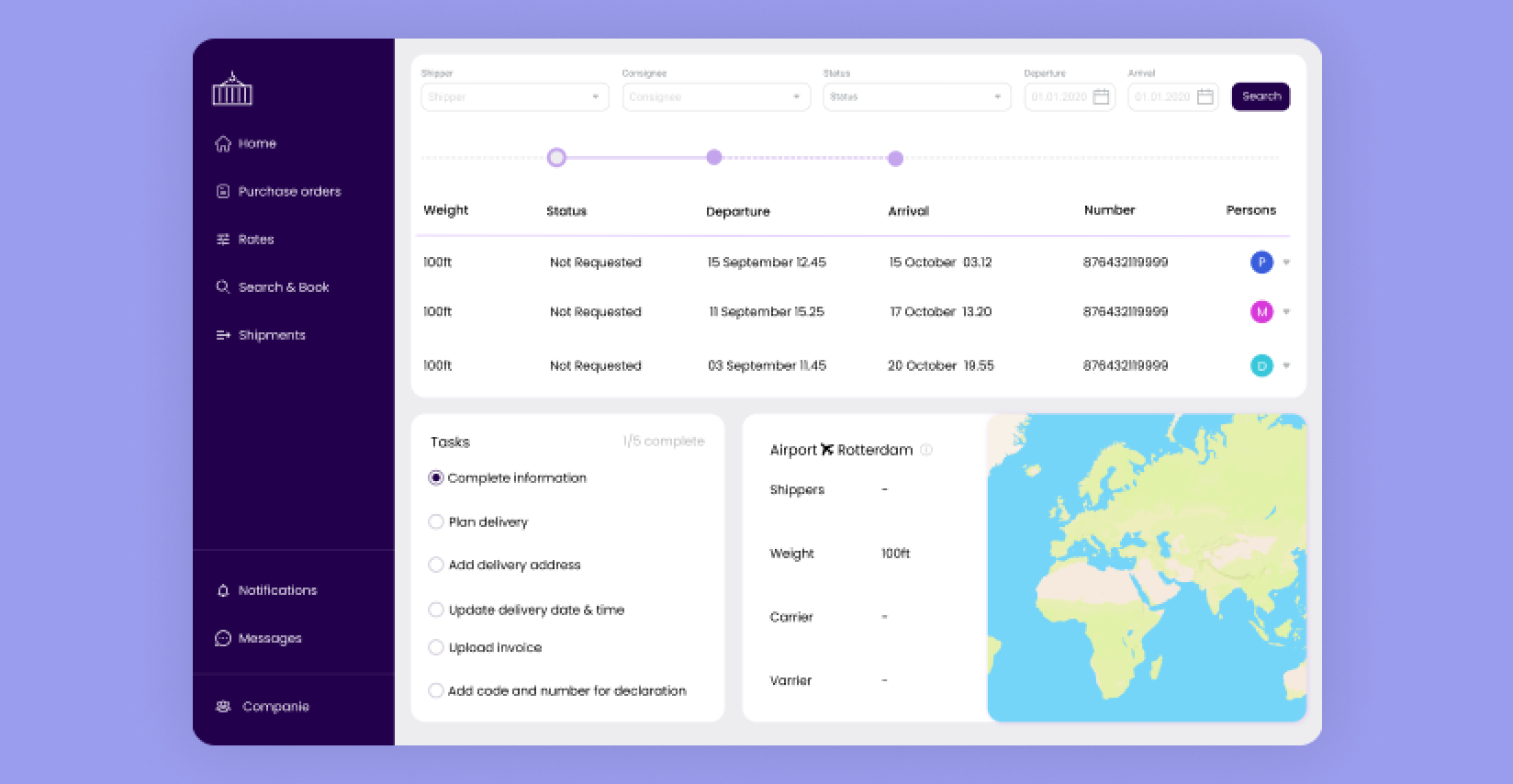
Adding cutting-edge features to a fleet control platform
This IT initiative consisted of embedding innovative features into our customer’s product. Our team carried out the complex integration with a video telematics app provided by an external company. As a result, it became possible to process and display significant volumes of carriage data in real time, monitor the changing situations via maps and graphs, and generate needed forms and documents.
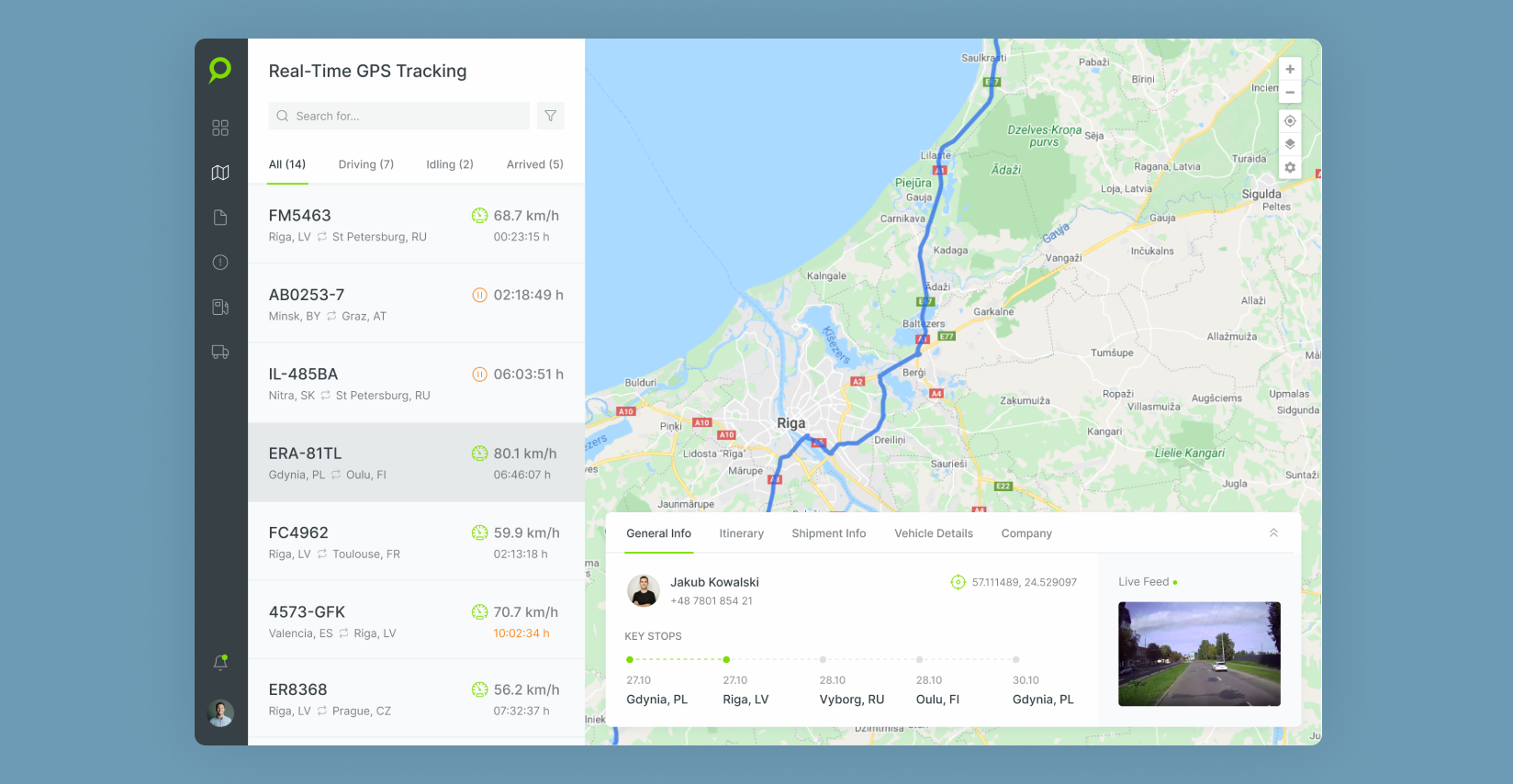
A successful car rental and sharing app
This cross-platform app for iOS and Android enables end-users to easily find and choose the best matching car across regions based on its rate, class, external and internal parameters, etc. All that drivers need to receive keyless access to their chosen vehicles is to provide their ID and driving license details. In addition, we built a web admin panel for the customer’s in-house use so that they now can effortlessly handle the information about their clients, car locations, analytics, employees, and more.
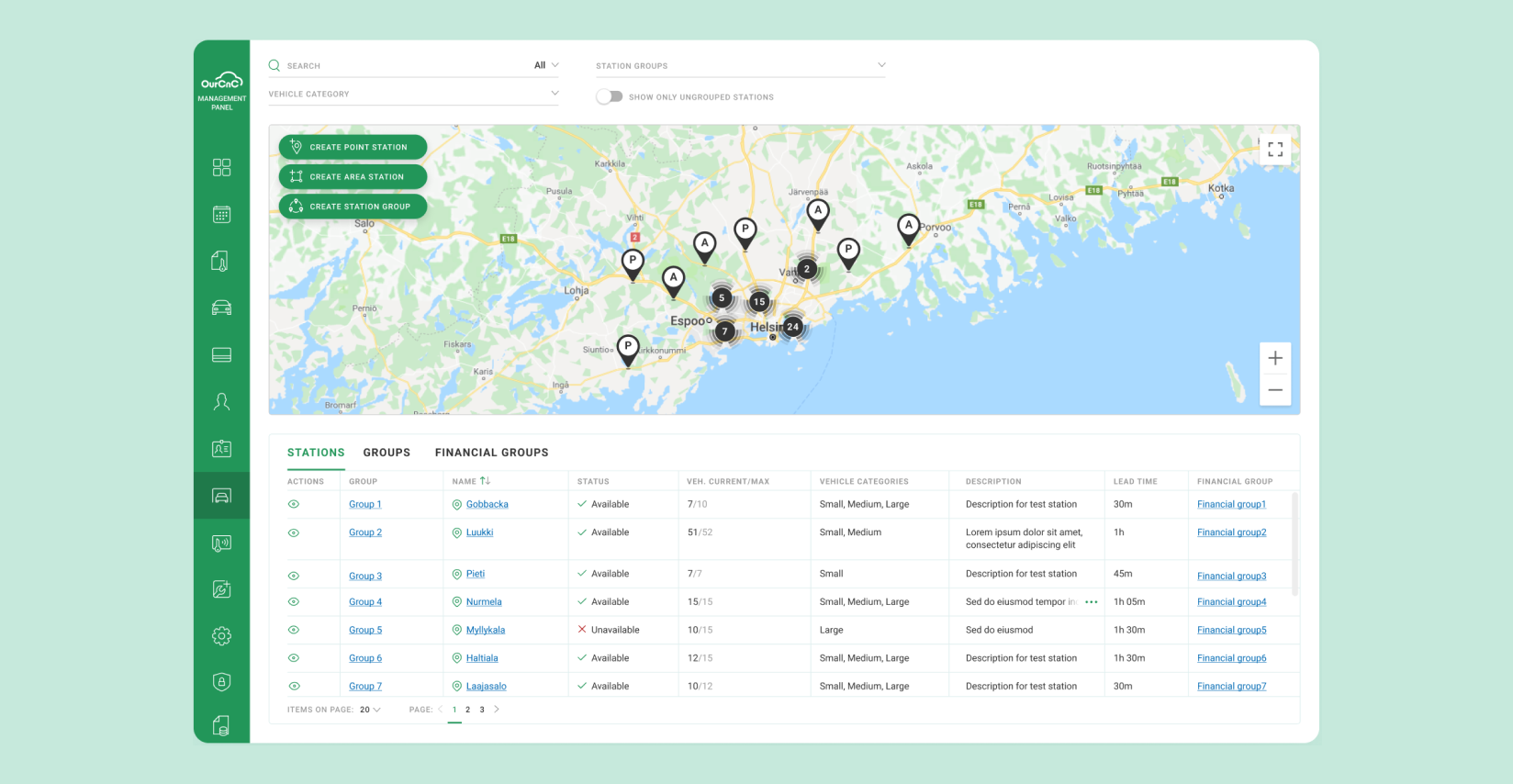
To sum up
While opting for ready-made programs may appear more cost-effective and time-efficient, availing yourself of the advantages of logistics software that is accurately tailored to your unique needs is often the most optimal choice. That is because, when the deliverables are geared toward your company’s specific processes, they can be easily scaled and upgraded according to your changing needs and smoothly integrated with the in-house systems. With them, you’ll be able to seamlessly operate in a demanding, unstable, and unpredictable market.
Our company boasts top-notch expertise in delivering well-elaborated products, making our team a superb choice for your next project. With the well-honed skills of our specialists and years of experience in development, you’ll be in the right position to achieve all your ambitious goals. Reach out to us today to take your boldest logistics ideas and plans to a new level!



